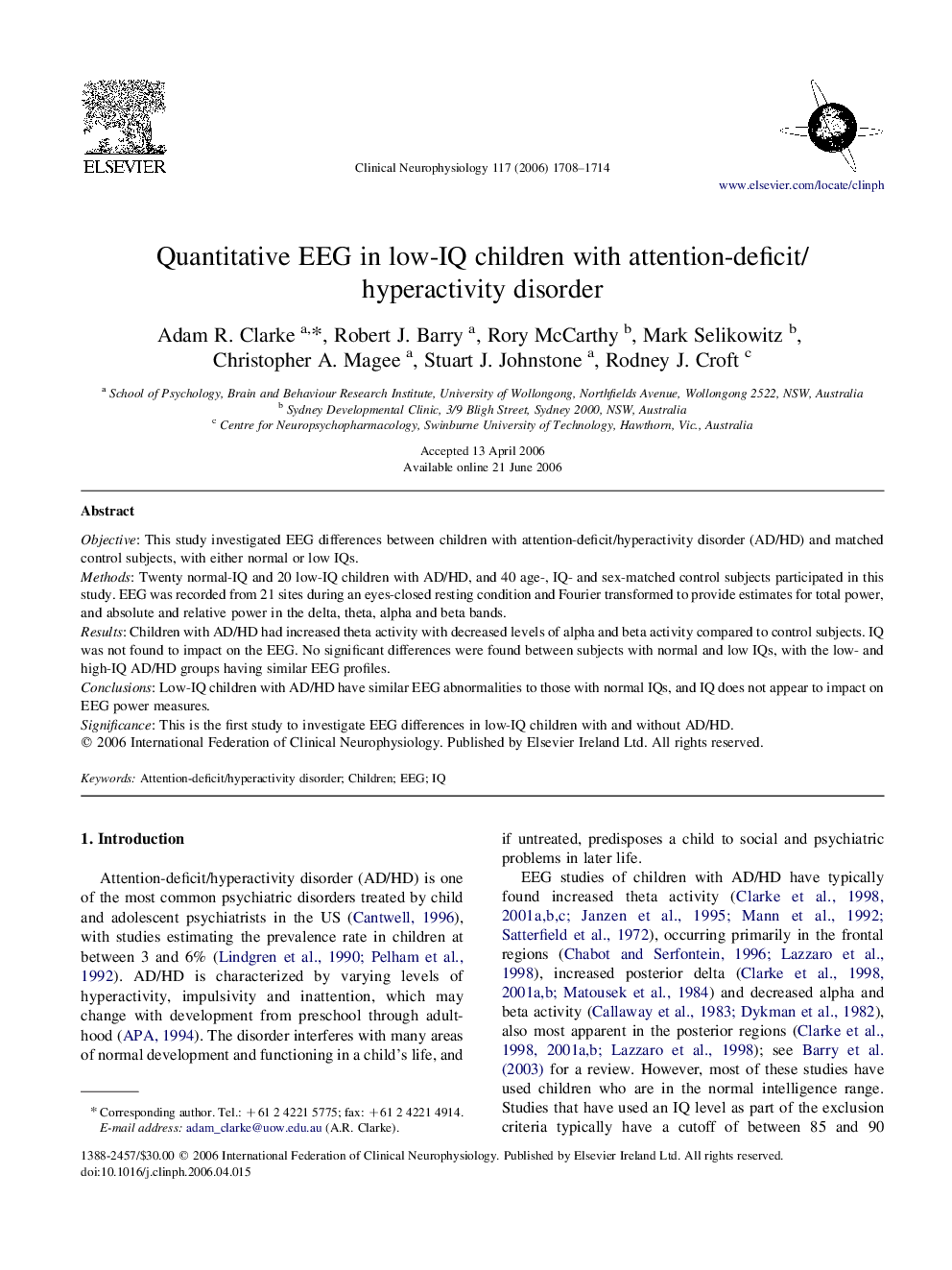| Article ID | Journal | Published Year | Pages | File Type |
|---|---|---|---|---|
| 3048663 | Clinical Neurophysiology | 2006 | 7 Pages |
ObjectiveThis study investigated EEG differences between children with attention-deficit/hyperactivity disorder (AD/HD) and matched control subjects, with either normal or low IQs.MethodsTwenty normal-IQ and 20 low-IQ children with AD/HD, and 40 age-, IQ- and sex-matched control subjects participated in this study. EEG was recorded from 21 sites during an eyes-closed resting condition and Fourier transformed to provide estimates for total power, and absolute and relative power in the delta, theta, alpha and beta bands.ResultsChildren with AD/HD had increased theta activity with decreased levels of alpha and beta activity compared to control subjects. IQ was not found to impact on the EEG. No significant differences were found between subjects with normal and low IQs, with the low- and high-IQ AD/HD groups having similar EEG profiles.ConclusionsLow-IQ children with AD/HD have similar EEG abnormalities to those with normal IQs, and IQ does not appear to impact on EEG power measures.SignificanceThis is the first study to investigate EEG differences in low-IQ children with and without AD/HD.
